 At this point, what’s to be said about Detroit: Become Human that hasn’t been said already? It’s been lauded as a marvel, ripped apart as an offensive homage to David Cage’s ego, described as nothing more than an average game offering, and seems to have confused reviewers across the board. But as a huge Quantic Dream fan, this was a title I simply couldn’t pass up. Keep in mind that I’ve been playing Quantic Dream’s games since Indigo Prophecy (read: Fahrenheit for you Euro and Steam readers) came out on the original Xbox and PS2. I loved it. I loved Heavy Rain. I enjoyed Beyond: Two Souls thoroughly. I have a promo Origami Killer origami bird on my shelf to this day. I’m a fan, damn it.
At this point, what’s to be said about Detroit: Become Human that hasn’t been said already? It’s been lauded as a marvel, ripped apart as an offensive homage to David Cage’s ego, described as nothing more than an average game offering, and seems to have confused reviewers across the board. But as a huge Quantic Dream fan, this was a title I simply couldn’t pass up. Keep in mind that I’ve been playing Quantic Dream’s games since Indigo Prophecy (read: Fahrenheit for you Euro and Steam readers) came out on the original Xbox and PS2. I loved it. I loved Heavy Rain. I enjoyed Beyond: Two Souls thoroughly. I have a promo Origami Killer origami bird on my shelf to this day. I’m a fan, damn it.
That being said, no one gets a free pass. If a game sucks, it sucks. I’m happy to call it out for what it is. And you should be happy that I’m happy to say it, since you’ll be the one buying the game. Why waste your money on a sub-par title? I certainly hate to. You’ll also notice that I refer to myself a fair bit in this review. That’s because my play style and experiences are inextricably linked to the game in a way that seems somewhat unique, at least in my opinion. So here it is: I’m 40, I work a full-time factory job with mandatory overtime, rotating shifts, and a two hour commute every weekday and some Saturdays. I have a wife and a two and a half year old son. My free time is at a significant premium. But I love gaming. So when I get the time to play something, I want to enjoy myself. These days, that’s less and less frequently, and mostly with niche indie titles. When a major AAA title drops, it usually drops to accolades, awards, and glowing reviews which slowly peter out as people play the game and change their minds, a scenario that’s not unlike the current feelings of most people I’ve talked to on Star Wars: The Force Awakens, which I thoroughly despised (judge me how you will, that’s just my opinion). In short, people over-rate most games and then slowly realize they were wrong but don’t really want to admit it publicly.
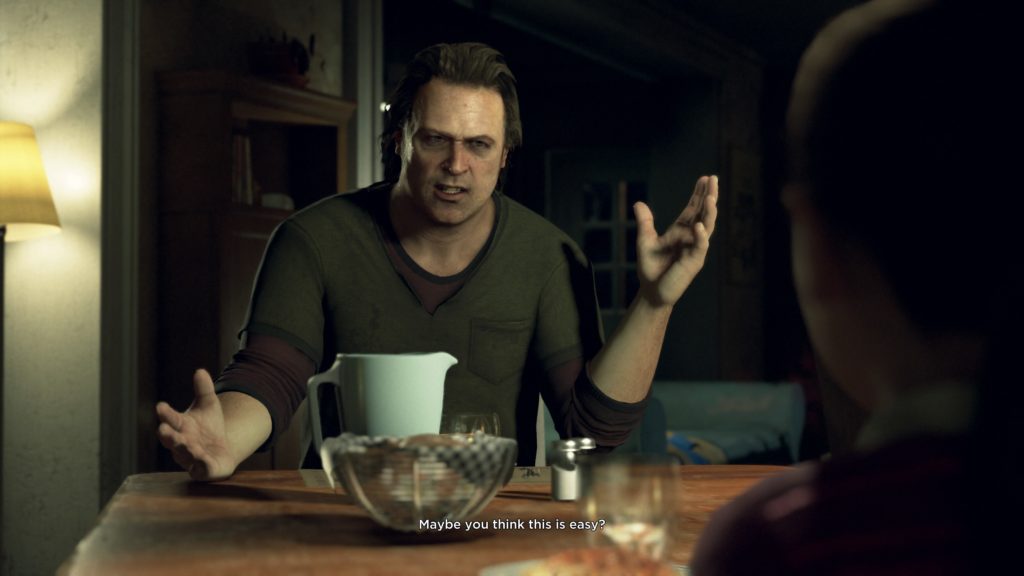
But Detroit: Become Human isn’t most games. Sure, it’s almost unbearably derivative. The pacing is overall quite slow. It’s been done to death in movies like Blade Runner. In TV shows like Almost Human (which is absolutely brilliant, it’s a crime it was cancelled, and virtually no one watched it. Just go watch it right now!), or Humans (also awesome but not quite as awesome as it’s Swedish source, Real Humans aka Äkta Människor…go watch those too). And in so many books that I hesitate to even mention any. We’ve done AI to bloody death. Seriously. I generally cringe when the concept is brought up. Detroit: Become Human manages to overcome that rather large hurdle though, and I am convinced it’s entirely about how you approach the game.
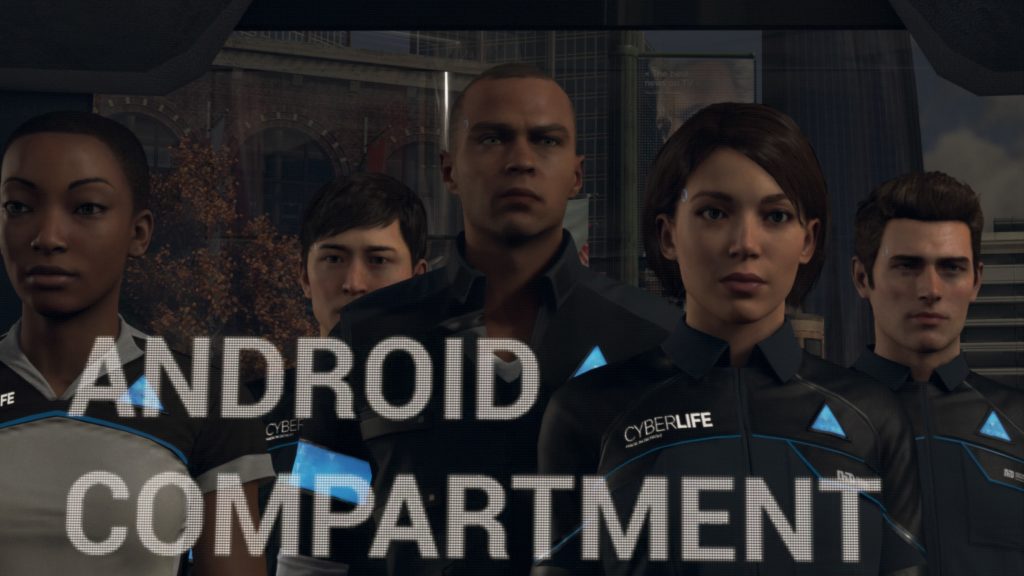
First things first, the game is stunning. I don’t mean it’s pretty cool looking either. I mean it’s absolutely breathtaking in its level of detail and execution, its adherence to proper motion techniques, and even the lip synching. I wish I could say I was surprised, but at the level that Quantic Dream operates at, it’s almost expected. The only thing I’ve seen that comes near this level is Hellblade: Senua’s Sacrifice, which surpasses Detroit in sheer graphics and texture quality, especially on a high-end PC. But hey, you knew that too. It’s a beautiful game. No one disputes that. The content is tedious and time-worn. No one disputes that. But it’s the approach that matters. Expect clean controls, amazing detail, and a well-told story. That’s simply stock-in-trade for Quantic Dream. But after that, that’s where things get interesting.
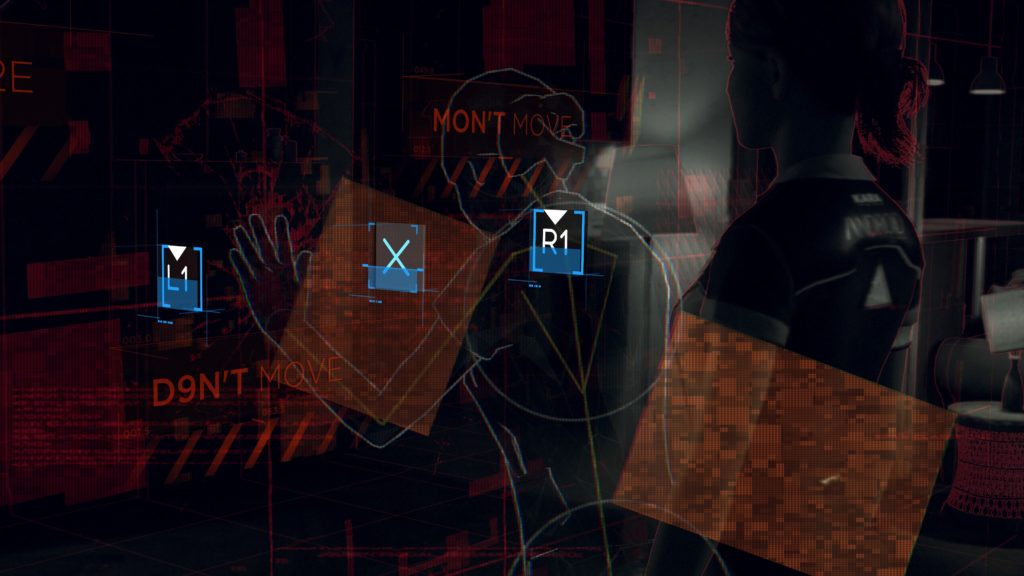 And interesting is really the word. Many reviewers found Detroit: Become Human rather heavy-handed. They’re not wrong. It’s a very blunt story that leaves little to the imagination and wields morality like a rusty, spiked club. But what a lot of people don’t realize is that David Cage has done this on purpose. To reach a wide audience, you have to be able to allow to audience to identify with your creation. That’s easy when you use a lovable rogue like Nate Drake in the Uncharted series or even the unnamed protagonist in Dragon Age: Inquisition. But it’s hard when your protagonists are three non-human robots. And it’s hard to reach that wide audience with a subtle story when you’re developing a AAA title as you’re likely to alienate a fair number of them. Quantic Dreams knows this and they tried to avoid it. They didn’t do a bad job either. Addressing issues of identity, child abuse, drug abuse, racism, and more within the multiple storylines is both admirable and relevant. But why then were the reviews so jumbled? Why can no one agree how good the game is or if it’s good at all? I say it’s because of the way people are playing the game.
And interesting is really the word. Many reviewers found Detroit: Become Human rather heavy-handed. They’re not wrong. It’s a very blunt story that leaves little to the imagination and wields morality like a rusty, spiked club. But what a lot of people don’t realize is that David Cage has done this on purpose. To reach a wide audience, you have to be able to allow to audience to identify with your creation. That’s easy when you use a lovable rogue like Nate Drake in the Uncharted series or even the unnamed protagonist in Dragon Age: Inquisition. But it’s hard when your protagonists are three non-human robots. And it’s hard to reach that wide audience with a subtle story when you’re developing a AAA title as you’re likely to alienate a fair number of them. Quantic Dreams knows this and they tried to avoid it. They didn’t do a bad job either. Addressing issues of identity, child abuse, drug abuse, racism, and more within the multiple storylines is both admirable and relevant. But why then were the reviews so jumbled? Why can no one agree how good the game is or if it’s good at all? I say it’s because of the way people are playing the game.
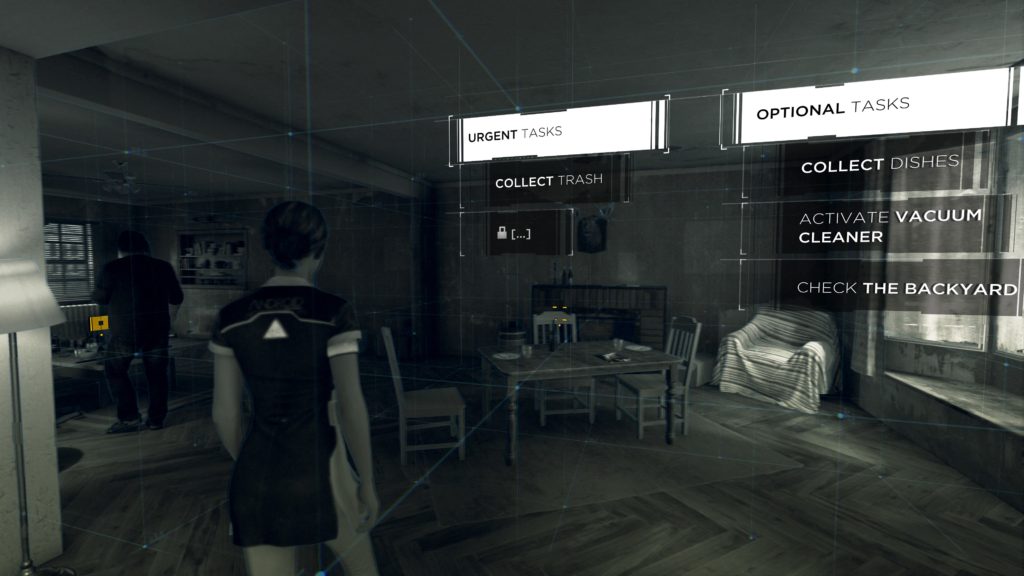 Reviewers tend to be mostly professionals who play their games heavily until they have finished them, then write a review before moving on to the next title. With so many releases these days, it’s hard to step back and take time with a title. Who has that kind of time in this busy world? I certainly don’t. You don’t even want to know how many months it took me to finish Ys VIII: Lacrimosa of Dana. *shiver* If you’re working like I am with a child or children and manage to occasionally turn on your system if you’re lucky, then this is probably the game for you, assuming you like deep, story based games. And that’s exactly you I’ve been playing Detroit: Become Human.
Reviewers tend to be mostly professionals who play their games heavily until they have finished them, then write a review before moving on to the next title. With so many releases these days, it’s hard to step back and take time with a title. Who has that kind of time in this busy world? I certainly don’t. You don’t even want to know how many months it took me to finish Ys VIII: Lacrimosa of Dana. *shiver* If you’re working like I am with a child or children and manage to occasionally turn on your system if you’re lucky, then this is probably the game for you, assuming you like deep, story based games. And that’s exactly you I’ve been playing Detroit: Become Human.
Detroit came in the mail the day before release day. It was a Thursday night after work, and I waited until my family had had dinner and we had tucked my son into bed. Then I played it for exactly 30 minutes before I went to bed as well. I had to be up at 4:20 AM to work the next day, but I wanted to play Detroit before it was officially out. I played through the first story segment, and it was intense and fascinating. I won’t ruin it for you, but there’s a hostage situation. It’s awesome. There are multiple branching paths of resolution dependent entirely on your actions and choices. Then I went to bed, got up, and went to work for 9 hours. And that whole time, in the back of my mind was the first story segment of Detroit: Become Human. I thought about it. It marinated in my psyche. I talked about it with my coworkers while I worked. And then I came home, had dinner, put my son to bed, and played another 40 minutes. I managed to get through the next two scenarios before bed. That was my whole week this week. Work, family time, dinner, and a smidge of Detroit before bed.
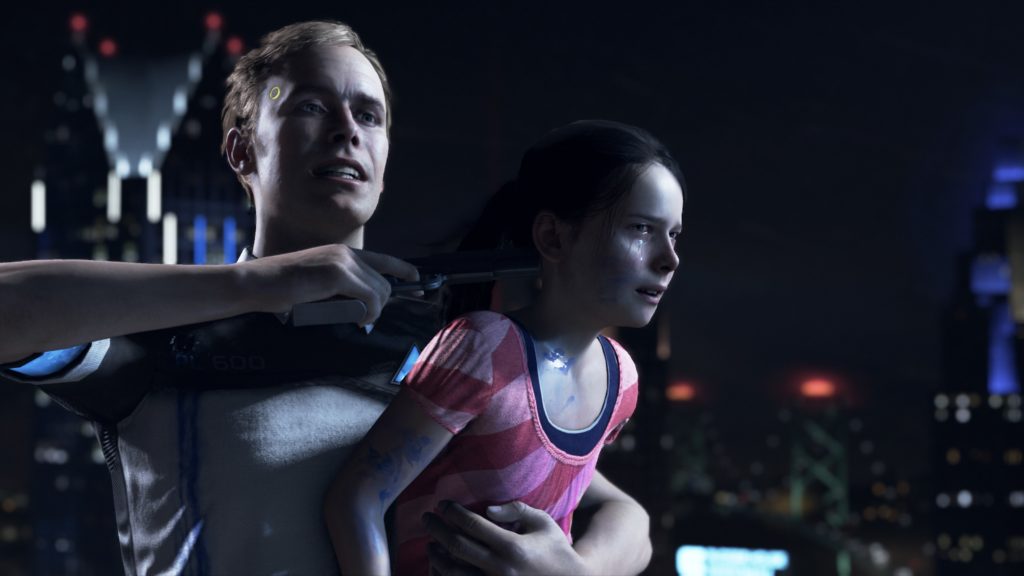 I haven’t finished the game. I won’t finish it this week, or next week. But I will finish it, because it’s intensely compelling. And it feels like it’s almost entirely designed for gamers like me who have very little time and want something deeper than a bunch of bullets careening into a target. Detroit is broken up into story segments, and each time you complete one you move on to another one with a different character. And each one adds another dimension to an already complex situation, even if some of them are a little more blunt than they could be. But when you play it 30 or 45 minutes at a time, the entire experience changes. At that point, you allow each segment to slowly digest, to consider not just the ramifications of the choices you made, but also how the story played out and what the intent of each section is in terms of the tapestry of the entire storyline. In small doses, you aren’t overpowered by the game’s story. Instead, it becomes more human (pun intended). It transforms into a game that is telling the pieces of lives that become a slow, almost philosophical lesson in identity and morality. Washing dishes while a scene of domestic abuse plays out in the periphery. Discussing painting and how irritating pretentious art fans can be. These things become the framework for what ultimately becomes a sociological analysis of what it means to be human using androids as a vehicle.
I haven’t finished the game. I won’t finish it this week, or next week. But I will finish it, because it’s intensely compelling. And it feels like it’s almost entirely designed for gamers like me who have very little time and want something deeper than a bunch of bullets careening into a target. Detroit is broken up into story segments, and each time you complete one you move on to another one with a different character. And each one adds another dimension to an already complex situation, even if some of them are a little more blunt than they could be. But when you play it 30 or 45 minutes at a time, the entire experience changes. At that point, you allow each segment to slowly digest, to consider not just the ramifications of the choices you made, but also how the story played out and what the intent of each section is in terms of the tapestry of the entire storyline. In small doses, you aren’t overpowered by the game’s story. Instead, it becomes more human (pun intended). It transforms into a game that is telling the pieces of lives that become a slow, almost philosophical lesson in identity and morality. Washing dishes while a scene of domestic abuse plays out in the periphery. Discussing painting and how irritating pretentious art fans can be. These things become the framework for what ultimately becomes a sociological analysis of what it means to be human using androids as a vehicle.
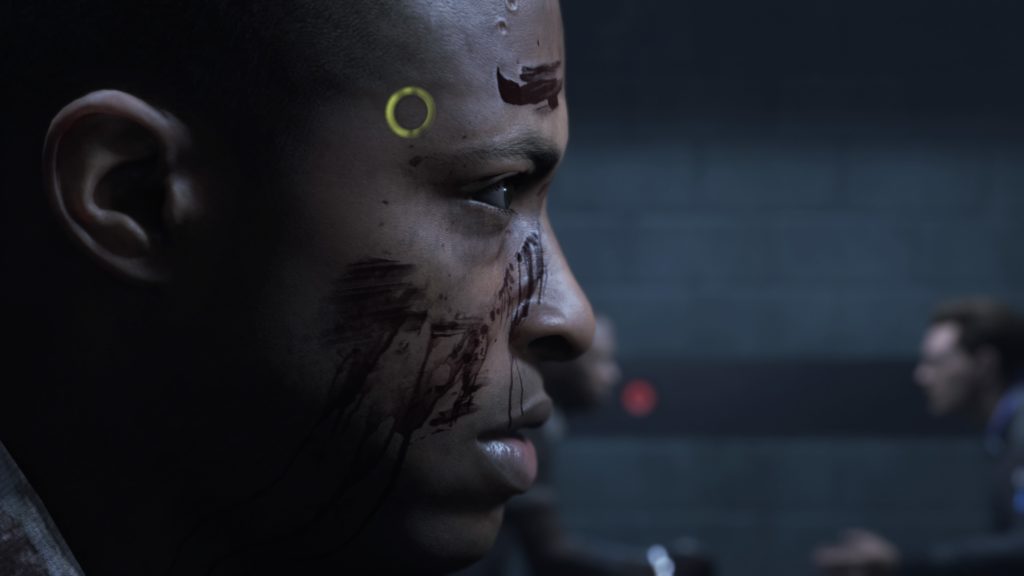
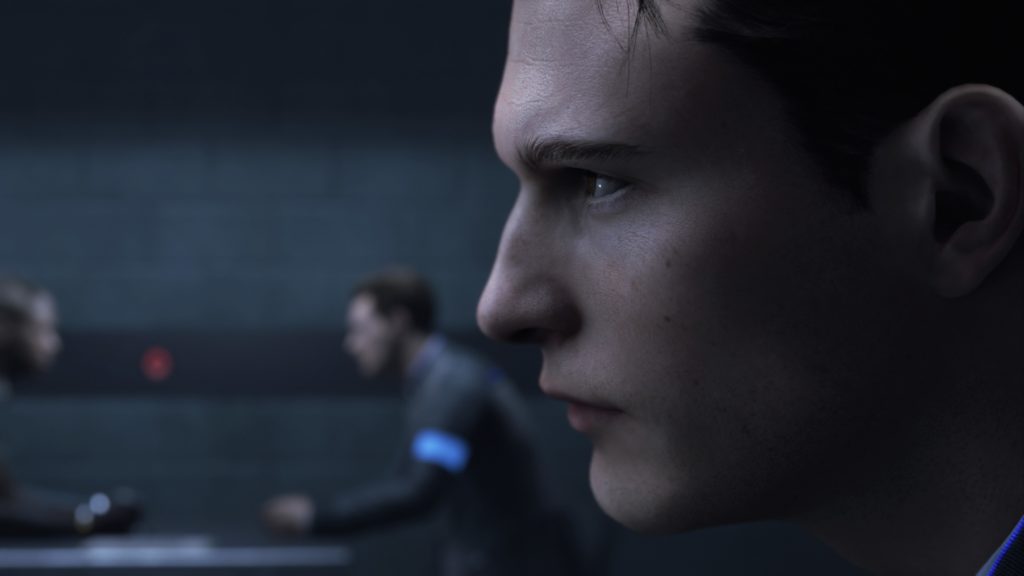
In this way, Detroit: Become Human is a work of art. It transcends gaming and becomes something more: An interactive masterpiece that entertains while it enlightens. And the content can be intense, as good art often is. Aided by the always spectacular acting of both Lance Henriksen and Clancy Brown as well as a host of other excellent actors, Detroit: Become Human manages to push boundaries, turn mundane tasks into compelling gameplay, and above all, be entertaining. On top of that, if you play it the way I did, in short segments, you have time to digest the story properly and really consider the meaning behind each section of the game. This is one of those rare instances where a game is arguably better-suited for those of us with limited free time. It only makes things better.
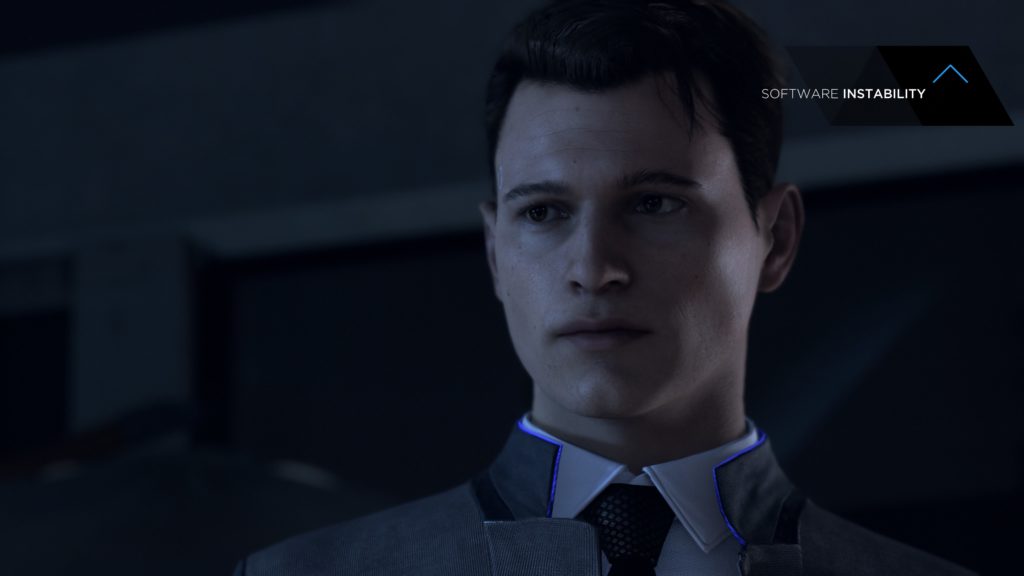 Ultimately, if you like a story-based genre, I cannot recommend Detroit: Become Human enough. It’s a solid game from a company with a long history of solid games. Yes, Quantic Dream has had some issues in the real world in terms of their work environment. If that bothers you, well, that’s up to you. I don’t like it, but I’m just here to play the game. And Detroit is absolutely fantastic, utterly compelling, and polished to a degree I rarely see. There’s not a ton of action in the section of the game I’ve played, and I didn’t care at all. I am along for the ride and I’m enjoying every minute of it. Detroit: Become Human is a PS4 exclusive and a rare gem in a landscape increasingly littered by coal and refuse. Don’t miss it.
Ultimately, if you like a story-based genre, I cannot recommend Detroit: Become Human enough. It’s a solid game from a company with a long history of solid games. Yes, Quantic Dream has had some issues in the real world in terms of their work environment. If that bothers you, well, that’s up to you. I don’t like it, but I’m just here to play the game. And Detroit is absolutely fantastic, utterly compelling, and polished to a degree I rarely see. There’s not a ton of action in the section of the game I’ve played, and I didn’t care at all. I am along for the ride and I’m enjoying every minute of it. Detroit: Become Human is a PS4 exclusive and a rare gem in a landscape increasingly littered by coal and refuse. Don’t miss it.
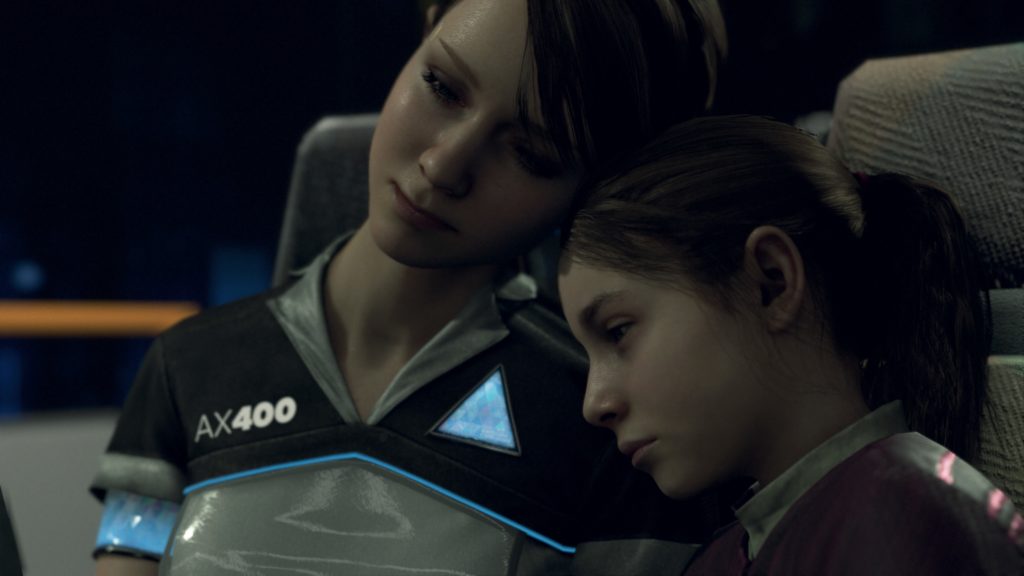 This review was written based on a retail release of Detroit: Become Human which was purchased via retail and played on a PS4 Pro.
This review was written based on a retail release of Detroit: Become Human which was purchased via retail and played on a PS4 Pro.
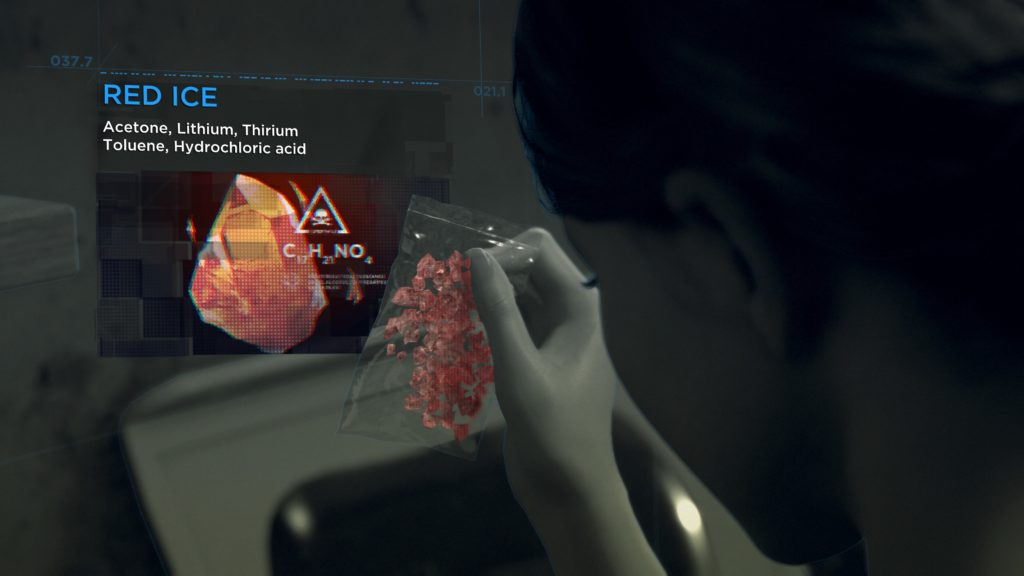


I mourn the fact that this game has no PC incarnation. It sounds like it has the kind of story that provokes thought, and that’s very valuable.